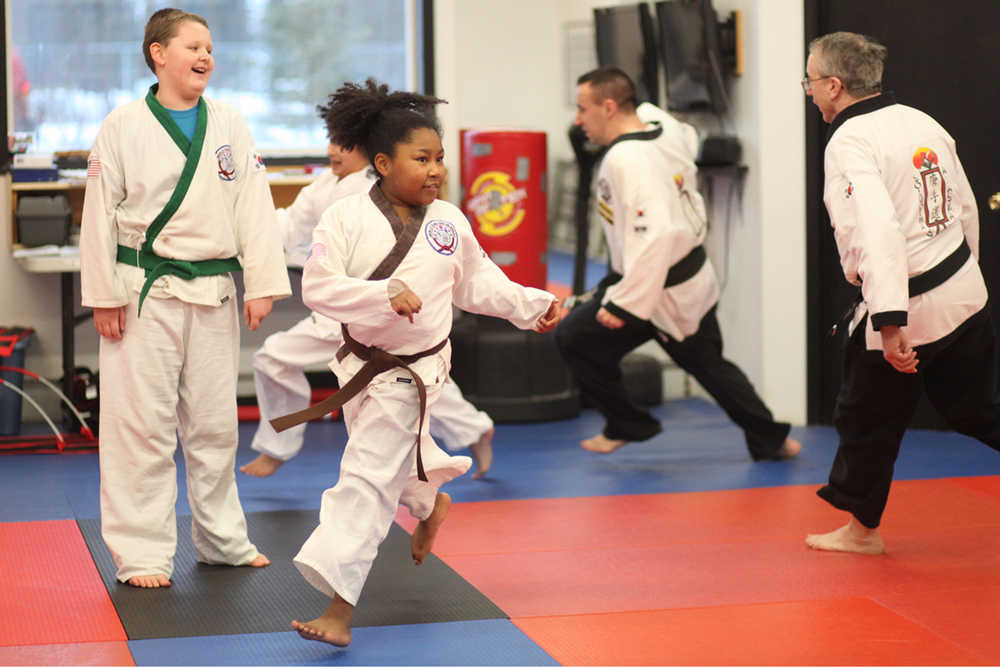When Denise Festervand watched her son shake a classmate’s hand after his Karate lessons began Thursday she proudly noted it was no ordinary occurrence.
It was a first for 10-year-old Sam Festervand, who is turning 11-years-old in March. More so, it was a marker of how far he has progressed since he started classes at Soldotna Martial Arts in Dec. 2014.
“He was called a trouble maker, a defiant child, a bunch of negative things…” Denise Festervand said, recalling her son’s years in public school. That was before he was diagnosed with Asperger’s syndrome, which is now diagnosed under the umbrella of autism spectrum disorder. He couldn’t read or write, or perform basic math equations prior to his enrollment at Interior Distance Education of Alaska three years ago, his mother said.
“I knew,” Denise Festervand said. “As a parent you just know when something isn’t right.”
He wasn’t rude or frightened, “just withdrawn,” Janice Haberman recalls when she met Sam in the IDEA office for the first time.
“He would not make eye contact, and was pretty nonverbal,” Haberman said. “…now when he comes in he is the happiest, most outgoing child.”
Haberman said some of Sam’s transformation has to do with his mother’s dedication to creating a good environment where he could get an education.
IDEA helped to tweak and refine the curriculum Denise Festervand taught her son to best fit his needs. Now he can read, write and complete math problems. While he is not up to fifth-grade level yet, he is getting there, Denise Festervand said.
However, both Haberman and Denise Festervand believe the bulk of the process began when he took up Karate.
“I attribute all that to this man right there,” Denise Festervand said pointing out Master Howard “Bud” Draper Thursday.
Sam thinks so too.
“I do that (Karate) because I want to not be shy around other people,” Sam said. “It is a good feeling and I really like the feeling of getting out of my shell, and not feeling shy anymore.”
When he first started, Sam said he didn’t like to be touched at all, as was his preference throughout most of his childhood.
“Steam would come out of my ears,” Sam said.
Draper and Sam both said the 10-year-old doesn’t experience those reactions anymore. Sam proudly said he can be punched and poked without a care now.
Draper said he has trained other students that had disabilities. He said Karate can be positive because it builds self-confidence, improves social skills and is a good way to get some physical activity, which burns a lot of energy.
“They have a tendency to be explosive at times,” Draper said. “Or just the opposite — shut down.”
The most effective instruction and transformations happen when the student has a very involved parent and works with Draper to help address the student’s needs, he said.
“Sam has come a long way in a couple of years,” Draper said. “It is not an overnight transformation.”
Reach Kelly Sullivan at kelly.sullivan@peninsulaclarion.com.

